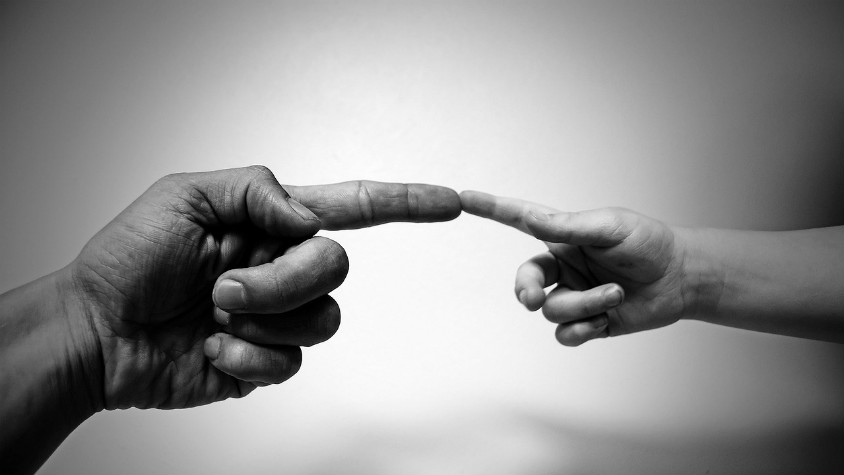Gratitude Is a Superpower
Lincoln Cannon
21 September 2016 (updated 3 January 2026)

When my children were young, Dorothee and I taught them that gratitude is a superpower. Why is that? Well, we all have power to some extent or another to shape the world around us for better or worse. Even if we don’t admit it to ourselves or others, we’re all working to increase that power. No, there’s nothing inherently good or evil about power. It’s just means for good or evil, according to the choices we make in applying it. Some of us are more effective than others at increasing our power. When we’re good at increasing our power, that indicates that we have a power for increasing power. That’s meta-power, or perhaps in other words, we have a superpower – arguably more super than those of fictional heroes whose powers typically don’t increase over time. One superpower, a power that increases power, is gratitude.
In its simplest form, as I explained it to my children, gratitude encourages people around you to help you more. When you’re whining, your parents are less likely to help you. And even if they do help, they’re less likely to go the extra mile while helping you. So when you whine, you get less of what you want. On the other hand, when you’re grateful, your parents love it. And they’ll probably help you again with greater enthusiasm, maybe even more than you hoped for. The same goes for friends, and even strangers. Perhaps most importantly, and less transactionally, the same goes for your relationship with yourself. Gratitude makes you feel better, even when you don’t get what you want.
Many people have subjectively experienced the power of gratitude in their personal lives. But we can go further than that. There is substantial objective evidence for the power of gratitude based on scientific studies. Here are some examples.
-
The Grateful Disposition: A Conceptual and Empirical Topography. In 2002, this review of four studies found that “self-ratings and observer ratings of the grateful disposition are associated with positive affect and well-being, prosocial behaviors and traits, and religiousness/spirituality … gratitude is negatively associated with envy and materialistic attitudes.”
-
Gratitude and hedonic and eudaimonic well-being in Vietnam war veterans. In 2006, this study found that “veterans with PTSD, compared to those without PTSD, exhibited significantly lower dispositional gratitude … dispositional gratitude predicted greater daily positive affect, percentage of pleasant days over the assessment period, daily intrinsically motivating activity, and daily self-esteem over and above effects attributable to PTSD … [and] daily gratitude was uniquely associated with each dimension of daily well-being in both groups.”
-
Coping Style as a Psychological Resource of Grateful People. In 2007, this study found that “gratitude correlated positively with seeking both emotional and instrumental social support, positive reinterpretation and growth, active coping, and planning … [and] gratitude correlated negatively with behavioural disengagement, self-blame, substance use, and denial.”
-
Gratitude uniquely predicts satisfaction with life: Incremental validity above the domains and facets of the five factor model. In 2008, this study found that “gratitude is positively correlated with extraversion, agreeableness, openness, and conscientiousness, and negatively correlated with neuroticism” , “and at the facet level showed a distinctive profile whereby gratitude was most strongly correlated with the facets representing well-being and social functioning.”
-
The role of gratitude in the development of social support, stress, and depression: Two longitudinal studies. In 2008, this review of two studies found that “gratitude led to higher levels of perceived social support, and lower levels of stress and depression … [and] gratitude seems to directly foster social support, and to protect people from stress and depression.”
-
Gratitude influences sleep through the mechanism of pre-sleep cognitions. In 2009, this study found that “gratitude predicted greater subjective sleep quality and sleep duration, and less sleep latency and daytime dysfunction.”
-
Gratitude predicts psychological well-being above the Big Five facets. In 2009, this study found that “gratitude had small correlations with autonomy, and medium to large correlations with environmental mastery, personal growth, positive relationships, purpose in life, and self-acceptance. … [and] gratitude is concluded to be uniquely important to psychological well-being.”
Okay, so recognizing the power of gratitude in theory is one thing. It’s another thing to realize that power in practice. How do we do that? Sometimes, as it turns out, we just don’t feel grateful. And it can be hard to change that.
So here’s a recommendation: keep a gratitude journal. It can be very simple. And it can train you, in an incremental and eminently practical way, actually to feel and express gratitude more often, thereby securing more of the benefits outlined in the study results above.
I’ve been keeping a gratitude journal for six years. Here’s how I do it:
-
I created a Google Form with five text fields for entering five things for which I’m grateful – anything from a single word to a paragraph.
-
I scheduled a weekly recurring appointment in Google Calendar, configured with an email reminder containing a link to the Google Form.
-
Each week I receive an email reminding me to update my gratitude journal, so I click on the link in the email and fill out the five fields with anything for which I’m grateful at the time – could take as little as one minute.
For six years, I’ve effectively cultivated an improved level of gratitude in my life. And after six years, I have a gigantic list of things for which I’m grateful. Sometimes I go back and read through them. Doing that further reinforces my sense of gratitude. And I can tell you unequivocally that this has been a productive practice, improving my mood as well as my relationships with others.
Gratitude is a superpower. If you have it, you know. If you don’t, start a gratitude journal. You’ll thank me. :)


